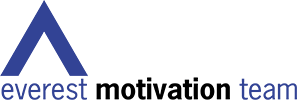 Five key leadership questions you should be asking this year
Five key leadership questions you should be asking this year
By David Lim
for CFO Magazine’s Leaders View
We’re a short few weeks into the new year, and depending on your organisation’s financial year, most of us will be looking forward to the latest news, trends and issues that will matter most to us this year. If you believe the best answers in life and work depend on the quality of the questions we ask, read on
Five questions may be key to how you respond to the year’s challenges and these are simply
1) Describe your role and purpose in one word
The time is right to revisit why you do what you do. It may seem simple, but it the crush of the daily commute, firefighting and pressing meetings; it’s important to describe exactly how you see yourself in your role. Are you an “accelerator” of business; helping the group move faster with on-time reports on their finances, and delivering means to leverage your organisation’s cash flow? Or perhaps you are an “enabler”? Someone who uses finance and the associated tools to ‘enable’ others to expand, build, create and deliver solutions to better the condition of their customers. A simple, yet powerful way is to imagine you’re speaking to an intelligent 10 year old, and needing to explain, in the shortest, simplest, yet most truthful manner, exactly what you do at work. Understanding your deep purpose in your own context is immensely powerful. It gives you leadership clarity at every stage of action, and helps you persist when you encounter obstacles and setbacks.
2) What is your biggest concern from an internal perspective?
According to 2015’s Finance Priorities Survey from the Financial Executives Research Foundation and consulting firm Protiviti, the five key concerns from an internal perspective are strategic planning, budgeting, compliance with regulations, profit analysis and cash forecasting are the most pressing concerns.
Even as leader of large expeditions to the great peaks in the past, no one is immune to these key issues. What would be our strategy and approach to reach the summit? Would we be employing lightweight and swift alpine style approaches, or adopting a more resource-intensive siege –style approach? What are our fund prior to the expedition? Would we need to hedge some funds in light of major currency swings? Have the recent changes to the permit system in assessing mountains in Nepal have an impact on our plans? However of all the major concerns, the greatest number of the 372 respondents identified strategic planning as the biggest concern. And so it should be. Strategy planning helps you align and deploy resources, sets a way forward with the constraints and resources that you have. The biggest red flag though, should be the extent to which you and your team can execute the strategy. In many cases, strategy planning with an unclear path to execute leads to confusion, backtracking and utter failure to deliver the result wanted
Do you share a similar set of concerns?
3) What is your biggest concern from a global perspective?
For many, it comes down to volatility – from geopolitical upheavals in the Middle East, escalation of tensions in East Europe because the Ukraine conflict ; the case of OPEC oil versus shale oil from the USA; tensions from reforms in India to create a more sustainable economy, and fluctuations in currency impact on trade and an export-driven economy
Some of you are already aware of and use SWOT (Strengths, Weaknesses, Opportunities and Threats) analyses to help create a path for the year ahead. However, at the geopolitical or external concerns level, it may be better to use a PEST analysis (Political, Economic, Social and Technological) – outlining specific aspects that are will affect your unique situation. Taking each in turn, from the Political view, what might the politics and policies of the day do to your 2015 plan? How will compliance play a role to stymie or protect gains made? Economic: interest rates that will rise, taxes, financial reforms, your hedge/bets and inflation will play a part. Social: what are your customers asking for in their ever-increasingly connected lifestyle and expectations? Technology: Patents, licensing, Big Data, Cloud – how will these have an impact on your business . I see maybe 10 times more SWOT analyses than PEST ones, and getting the analysis right in the PEST exercise goes a long way in helping you gain clarity.
4) What will you do on a process level to get your goals?
Last but not least, a key question to ask is about process. Process determines the series of steps, habits, behaviours and daily action that you and your team will need to consider and take in order to achieve your goal. I feel far too much energy at this time of the year goes into goal-setting when the right focus should be on the steps and processes you are committed to take or do to get what you want. And this includes winning the buy-in for these processes from your nearest and closest team
5) What will you change, personally, to improve your unique condition?
This could be a fitness goal, or a relationship goal. Ultimately, our lives should be like the tiles on a wall, and not the grouting that holds the tiles together. We should strive to make our lives, families and values the centerpiece, and not the other way around like the grout.
David Lim is Asia’s Leadership Coach, and best known for leading the 1st Singapore Mt Everest Expedition. Since 1999, he has helped organizations build teams and grow leaders. Send him a note today at to subscribe to a no-cost leadership e-newsletter.
